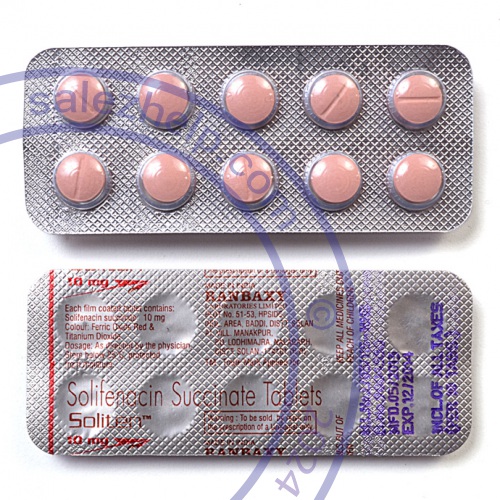Vesicare Singapore
Vesicare is a prescription medication used to treat symptoms of overactive bladder such as frequent or urgent urination, and incontinence. Its active ingredient, Solifenacin, belongs to a class of drugs known as antimuscarinics which work by relaxing the bladder muscles to prevent urgent, frequent, or uncontrolled urination. This medication should be taken as directed by a healthcare provider and may have potential side effects such as dry mouth, constipation, and blurred vision. Always consult your doctor or pharmacist if you have any concerns or questions.
- 5mg
- 10mg
Sure, here are the top nine most popular questions about the medication Vesicare in Singapore along with thorough answers.
What is Vesicare used for?
Vesicare (Solifenacin Succinate) is a medication used to treat symptoms of an overactive bladder, such as frequent urination, urgent urination, and urinary incontinence. It works by relaxing the bladder muscle, which helps control the frequency of urination.
How should I take Vesicare?
Vesicare should be taken exactly as prescribed by your healthcare provider, usually once a day, with or without food. Swallow the tablet whole with a full glass of water, do not crush or chew. Dosages are based on medical condition and response to treatment.
What side effects can Vesicare cause?
Common side effects of Vesicare include dry mouth, constipation, and blurred vision. Some serious side effects include signs of kidney infection such as fever, painful urination; signs of heart failure like unusual sweating, shortness of breath, or sudden weight gain. Contact your healthcare provider if any of these side effects persist or worsen.
Can I drink alcohol while taking Vesicare?
Alcohol can increase the likelihood of experiencing certain side effects of Vesicare such as dizziness, drowsiness, and blurred vision. It's better to limit or avoid consumption of alcohol.
Who should not take Vesicare?
Vesicare should not be used by anyone who is allergic to Solifenacin or any of the ingredients of the medication, or have certain medical conditions including uncontrolled narrow-angle glaucoma, urinary or gastric retention, or severe decrease in liver or kidney function.
Can Vesicare interact with other medications?
Yes, Vesicare can interact with other drugs such as certain antifungal medications (itraconazole, ketoconazole), certain HIV protease inhibitors (ritonavir, nelfinavir), among others. Always let your healthcare provider know about any other medications, supplements, or herbal products you're currently taking.
What happens if I miss a dose?
If you miss a dose of Vesicare, take it as soon as you remember unless it's almost time for your next dose. In that case, skip the missed dose and continue with your regular dosing schedule. Do not take a double dose to make up for a missed one.
Can Vesicare cure overactive bladder?
Vesicare does not cure overactive bladder but it can help manage and reduce the symptoms. Even if you feel better, you should continue taking Vesicare as long as your doctor recommends.
Can pregnant or breastfeeding women take Vesicare?
Vesicare should only be used during pregnancy if the potential benefit justifies the potential risk to the fetus. Nursing mothers should avoid using Vesicare as it is unknown if Vesicare passes into breast milk. Always consult your healthcare provider for advice based on your specific circumstances.
Remember, despite having this information, you should always consult your healthcare provider or a pharmacist before starting, stopping, or changing any medication regimen. This is to ensure you're using medications safely and effectively.
What are known local names of the medication?
- Solifenacinum
- Vesitrim
- Solitensin
- Solifen
- Solifenacin Succinate
- Vesikur
- Soliten
- Solitab
- Solifenacin



